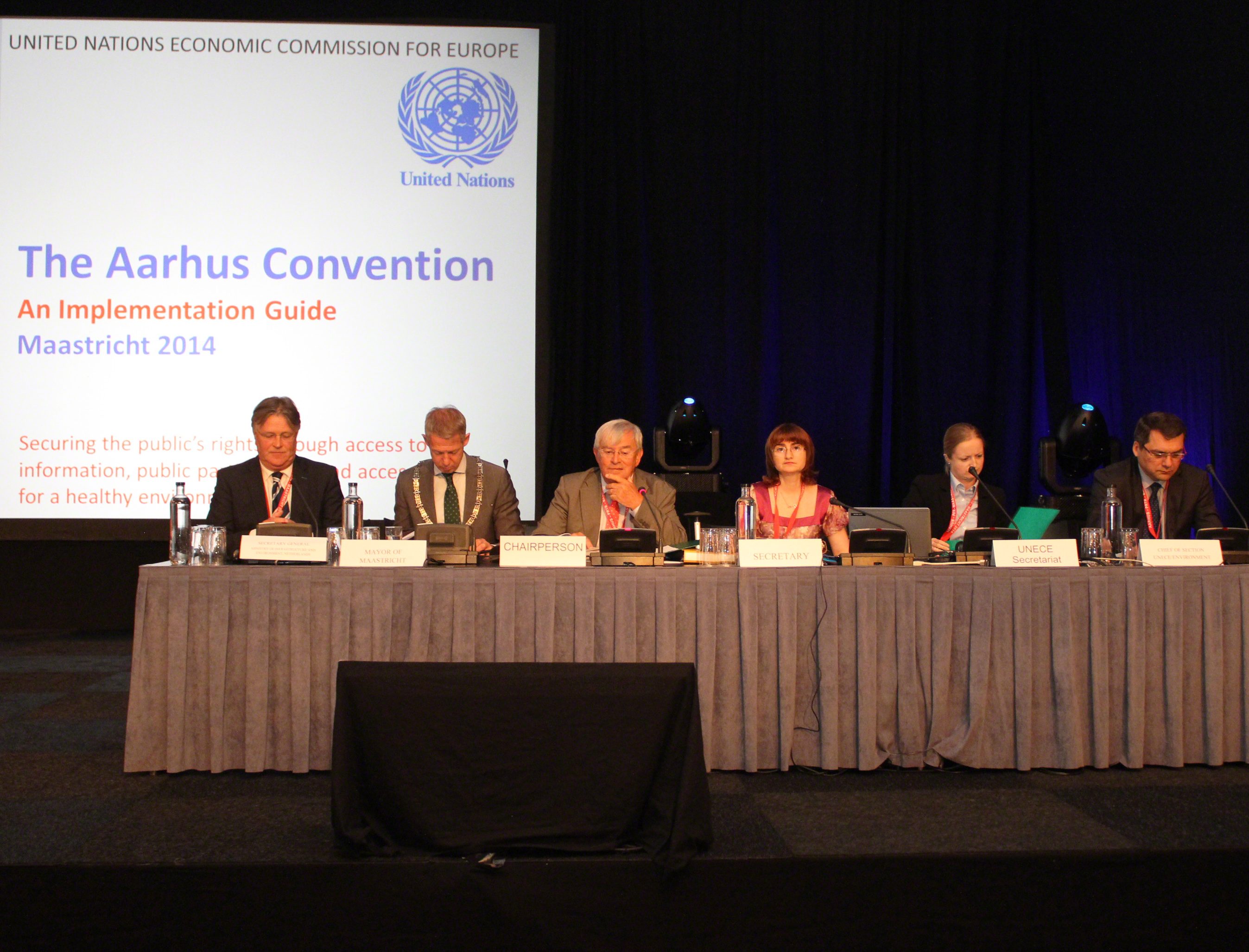
The Aarhus Convention
The Aarhus Convention on Access to Information, Public Participation in Decision-making and Access to Justice in Environmental Matters is an inspirational UN treaty that establishes critical environmental rights.
Kofi Annan, former UN General Secretary described the Aarhus Convention as “the most ambitious venture in environmental democracy undertaken under the auspices of the United Nations.”
The Convention recognises the link between the protection of human rights and the environment, and every person’s right to a healthy environment – as well as his or her duty to protect it. This applies not only to those of us living today, but to future generations as well.
Aarhus upholds the following rights for every person:
- the right to be informed and have access to information about the environment;
- the right to participate in environmental decision making; and
- the right of easy and effective access to justice if the former rights are denied
The last of these three enables the public to challenge general breaches of environmental law, even if they have not suffered personal harm. This is crucial in fighting decisions that lead to climate damaging developments.
In addition, the Convention states that access to justice under any of these headings must not be “prohibitively expensive”.
Aarhus in Scotland
Scotland, as an Aarhus signatory through the UK and the EU, is legally obliged to implement the Convention fully.
Access to information and participation rights have been established in law. However, very little has been done to ensure that citizens and communities have access to justice in environmental cases.
Consequently all kinds of barriers stand in the way when people and communities try to legally challenge a badly made decision or a damaging development. It also means there is little incentive on the part of developers and public authorities to ensure that participation.
We are calling for reforms to ensure:
- that the process of challenging breaches of environmental law or poor decision making is free or inexpensive, so that people and communities aren’t put off taking action by the threat of huge costs
- that the merit, or substance of decisions can be examined by the courts, not just whether due process has been followed
- that public legal education is improved, and the court system made more user friendly, so that people learn to recognize problems and injustices which may have a potential legal solution, and aren’t put off by an archaic system
We have achieved some significant successes including:
- a change in the law on standing in judicial review to enable anyone with a ‘sufficient interest’ to take legal action
- the introduction of Protective Expense Orders that cap liability for legal expenses for citizens, community groups and NGOs in taking legal action on environmental issues in the Court of Session
Read our report ‘Tipping the Scales: Complying with the Aarhus Convention on Access to Environmental Justice‘
